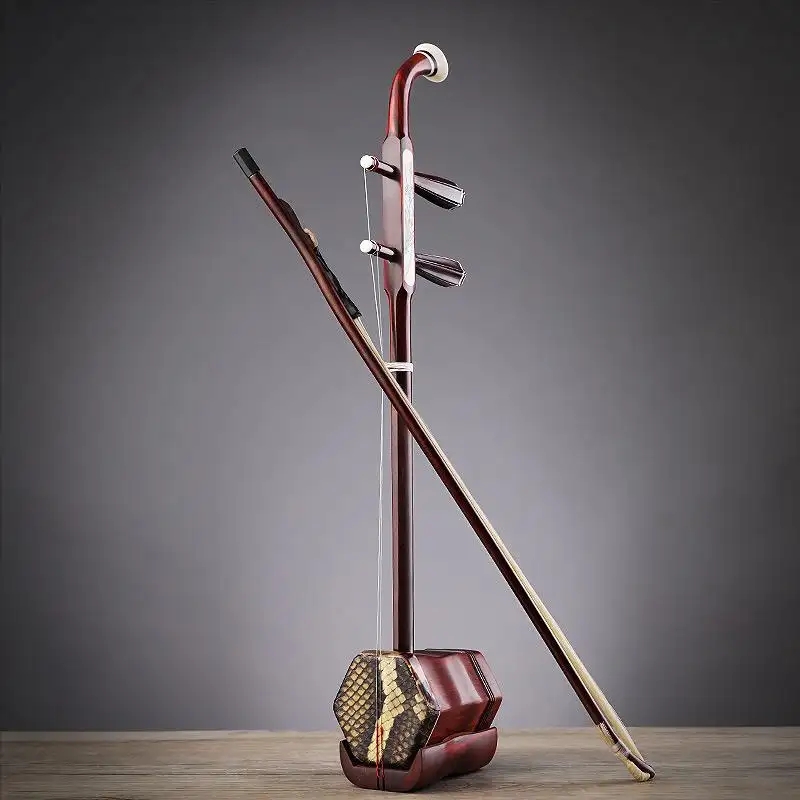China Broadcasting Chinese Orchestra Qixi Festival Large-scale National Symphony Concert
On the evening of August 4th, "Rose Rose I Love You - China Radio National Orchestra Qixi Large-scale National Symphony Concert" was staged in the Concert Hall of the National Centre for the Performing Arts under the baton of conductor Peng Jiapeng. The concert includes the joyful Chinese orchestral "Festival Overture" and the romantic and relaxing "Rose Rose I Love You"; as well as the Chinese orchestral "Ode to the Sun" showing the style of the Bashu landscape. The Chinese orchestral "Symphony of Silk and Bamboo" depicting the beautiful water town in the south of the Yangtze River. The atmosphere of the whole concert infects every performer and audience. After each work, there will be long-lasting applause.

As a concert held on the traditional Chinese festival "Qi Xi", the romantic and beautiful classic work "Liang Shanbo and Zhu Yingtai" is the most suitable "pointing topic". To this end, the China Broadcasting Chinese Orchestra specially invited Yang Xue, an associate professor of the Folk Music Department of the Central Conservatory of Music and an erhu performer, to cooperate with the orchestra with a unique double-pound erhu to perform wonderfully well-known songs. The "Liang Zhu" performed in this concert was adapted by Zhang Dasen, the former head, conductor and composer of the China Radio Chinese Orchestra. It is a version exclusively for the China Radio Chinese Orchestra. Unlike the previous solo performances by violin, this concert is the first time that the China Broadcasting Chinese Orchestra has collaborated with an erhu player to perform in this version.
In Yang Xue's opinion, in this version, the composer Zhang Dasen makes good use of and dares to use the national orchestral instruments, especially the suona. The performance of the string and plucked music comes out naturally and smoothly, without giving people the abrupt feeling of "exploding". . This is possible only when the composer knows the band very well. Between conductor Peng Jiapeng's gestures, the performers and the orchestra skillfully cooperated to "play fast and slow" one after another, which not only highlighted the unique charm of folk music, but also restored the moving colors of the original work. Yang Xue said that although it was the first time for him to cooperate with the China Broadcasting Chinese Orchestra, the two sides formed an unprecedented tacit understanding during the rehearsal. Especially in the loose part, the relatively free performance of the solo can be fully integrated into the sound created by the concerto, giving this work a unique temperament and creating a unique artistic feature in the musical description and interpretation.
"Liang Shanbo and Zhu Yingtai" was originally a concerto for violin, but it was very difficult to perform after it was adapted into an erhu concerto. There were erhu versions, gaohu versions, erhu and gaohu versions of "Liang Zhu", all of which were made by transposing or changing instruments to achieve the purpose of being suitable for erhu performance. Although the difficulty of playing the erhu has decreased after the transposition, the tone and color of the work will still be compromised to a certain extent. The change of instruments on the spot adds a tedious part to the performance of the erhu performers.
In this concert, Yang Xue used a specially made erhu to successfully solve the above difficulties and perfectly presented the original version of "Liang Zhu" with the band. The special feature of this erhu is that it is a double-pound erhu, which extends the sound range of the erhu down to a pure fourth interval, which is a useful exploration to solve the defect of the erhu's narrow sound range.
 渝公网安备 50010702504639号
渝公网安备 50010702504639号